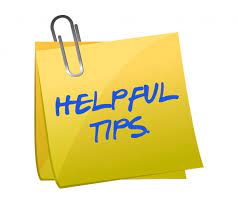
What to do if you get Covid when travelling overseas?
What to do if you get Covid when travelling overseas?
No one likes being sick while travelling, but when it’s Covid it can seriously disrupt your travel plans.
If you’re planning on travelling overseas, it’s important that you understand the risks of contracting Covid in your destination and what to do if you test positive. You’ll also need to understand the requirements for returning to Australia.
Being in the know with the latest travel advice and information is essential. Visit theSmart Traveller website - travel advice for your destination so that you’re aware of the risk of contracting Covid in that location and standards of medical care, in case you require medical attention.

Before you travel, arrange suitable travel insurance and that covers for Covid. You should also make sure that you have sufficient funds to cover an extended stay in case you need to quarantine or isolate and/or make changes to flights and accommodation.
What should I do if I'm diagnosed with COVID-19?
You'll need to abide by whatever rules apply so first, call the nearest Australian diplomatic mission. They probably can't do anything but they can tell you what you need to do. If your condition worsens, consular staff can tell you who to call, or do it for you in an emergency.
If you are positive will you need to quarantine or self-isolate?
If you test positive to COVID-19, you may be required to quarantine or self-isolate (more likely) depending on what country or city you’re in.
The difference is quarantine is more rigidly supervised. If the requirement is for self-isolation and you don't have friends or family who will accommodate you that could mean finding a hotel that will let you in. In Spain's Valencia region for example, some hotels have self-isolation rooms for visitors with COVID-19. Expect room service meals, no cleaning service for your room and no contact with anyone.
If you're travelling with a partner or a family, as close contacts they will probably be required to self-isolate with you regardless of any test result. The time frame varies but 7-10 days of isolation is typical. Other countries have government-managed quarantine facilities. The cost is down to you and the penalty for breaking self-isolation can be enormous – up to €30,000 in the case of Spain.
Some countries have government managed quarantine facilities or you’ll need to find suitable accommodation. You’re responsible for covering any costs involved with quarantine, which can be significant.
Be prepared for the possibility you may be in your destination longer than planned.
Entering Australia after contracting Covid
If you or a primary close contact of your travelling group tests positive, you won't be allowed to travel to Australia until you have recovered.
If you have isolated and recovered but your test results continue to be positive, you may be eligible for an exemption if you have a certificate from a medical practitioner. It’s important to note, the certificate must must clearly state that at least 14 days have passed since the onset of symptoms, or from the initial positive PCR test result if you're asymptomatic. It must also state there has been clinical resolution of fever and respiratory symptoms of the acute illness for the previous 72 hours and that you have previously had COVID-19 but are now recovered and not considered to be infectious.
Local authorities, airlines and transit locations may have more rules in place for departures. I recommend that you check these before arriving at the airport. If you're transiting during your trip, check the local requirements at each transit destination. Confirm any specific rules for onward travel with your airline.
TIPS:
- For information on where to get tested, contact the local health authority in your location. Always use an accredited testing facility. Scammers are taking advantage of travellers by charging for fake tests.
- Some travel insurers offer limited cover for COVID-19. It will likely only cover medical, quarantine and cancellation costs if you test positive to COVID-19. You should carefully check the details of your travel insurance policy before you leave.
- Choose a destination with a robust medical system, low infection rates, a high percentage of the eligible population fully vaccinated and strict requirements surrounding mask-wearing and proof of vaccination status for entry to restaurants, etc.


